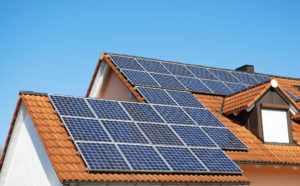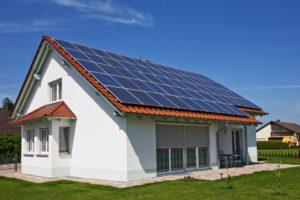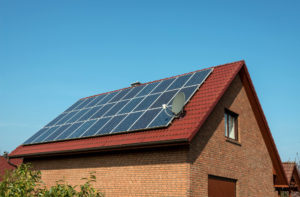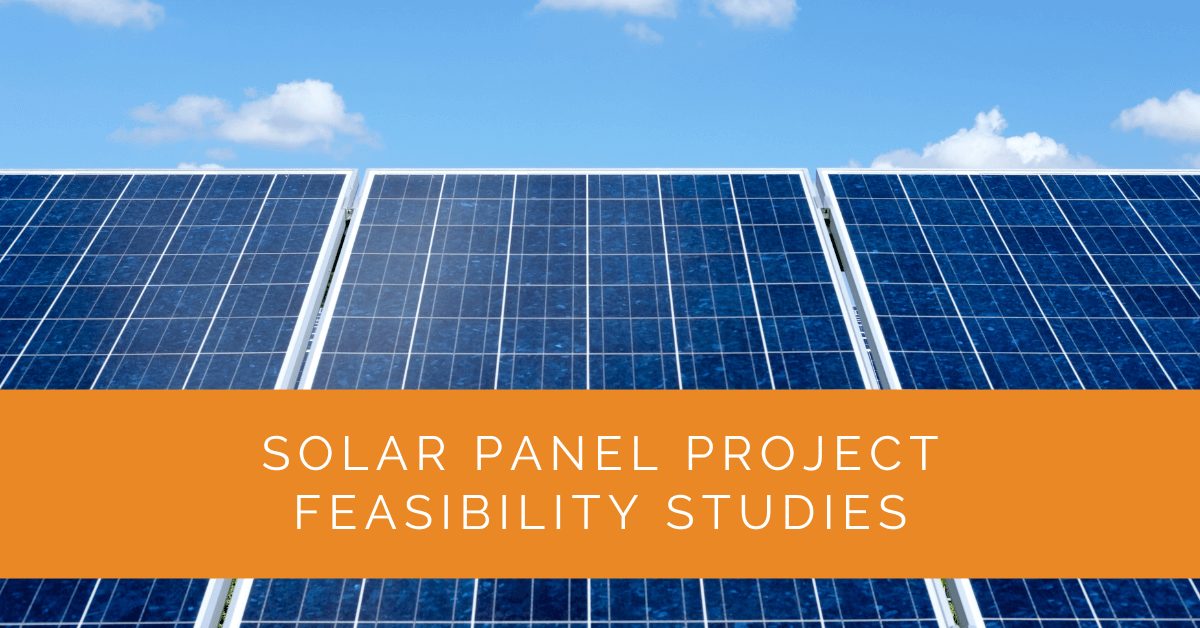Solar energy is rapidly becoming one of the most promising renewable sources due to its environmental and economic benefits. Nonetheless, it’s crucial to conduct thorough feasibility studies before starting any solar project for residential or commercial purposes. These studies are the foundation of successful solar projects, enabling investors and developers to make informed decisions concerning the feasibility and potential benefits of their solar energy systems.
Contents
- 1 Key Takeaways
- 2 The Basics of Solar Feasibility Studies
- 3 Benefits of Conducting Solar Feasibility Studies
- 4 Commercial Solar Projects and Feasibility Services
- 5 The Process of Conducting a Solar Feasibility Study
- 6 Key Factors Impacting Solar Project Feasibility
- 7 Case Study: The Importance of Solar Feasibility Studies
- 8 Expert Insights From Our Solar Panel Installers About Solar Panel Project Feasibility Studies
- 9 Experience Solar Excellence with Us!
- 10 Conclusion
Key Takeaways
- Solar feasibility studies are essential for assessing the viability of solar projects, providing valuable insights into site suitability, financial projections, and risk assessment.
- These studies help investors and developers make informed decisions, optimize project design, and maximize the ROI of solar energy systems.
- Factors such as location, financing options, and government incentives play a significant role in determining the feasibility of solar projects, making thorough analysis crucial for success.
The Basics of Solar Feasibility Studies
What Are Feasibility Studies for Solar Energy Systems?
Solar feasibility studies are comprehensive assessments that evaluate the practicality and viability of implementing a solar energy project. Such studies are essential whether you’re considering a small residential installation or a large-scale commercial solar project. They provide valuable insights into the project’s potential success, considering various factors, including site conditions, financial considerations, and environmental impacts.
Key Components of a Solar Feasibility Study
A solar feasibility study consists of several critical components:
Site Assessment
One of the initial steps is to evaluate the potential site for your solar project. Factors such as location, available space, shading, and environmental considerations are assessed to determine if the site is suitable for solar panel installation.
Energy Production Analysis
This analysis estimates the amount of electricity that the solar panels can generate based on the site’s solar irradiance and available space. Determining the system’s energy output and alignment with your energy needs is essential.
Financial Projections
A solar feasibility study includes detailed financial projections, accounting for the upfront costs of installing the solar panels, ongoing maintenance expenses, and potential revenue generated from electricity production. These projections help determine the project’s financial viability.
Risk Assessment
Identifying potential risks and challenges is vital. This assessment considers factors like regulatory hurdles, weather-related risks, and equipment failures, helping stakeholders prepare for contingencies.
Environmental Impact Assessment
Evaluating the environmental impact is essential to ensure compliance with local regulations and to minimize carbon emissions. This assessment addresses land use, water resources, and wildlife habitat concerns.

Benefits of Conducting Solar Feasibility Studies
Making Informed Investment Decisions
Solar feasibility studies give investors and project developers a clear picture of the potential return on investment (ROI). Armed with this information, they can decide whether to proceed with the project or explore other renewable energy options.
Identifying Potential Challenges and Risks
You can identify and address potential roadblocks early in the planning process by conducting a thorough analysis. This proactive approach minimizes project delays and unexpected costs, ensuring smooth execution.
Maximizing the ROI of a Solar Energy System
A well-executed feasibility study helps optimize the design and configuration of the solar energy system, ensuring that it operates efficiently and generates maximum electricity. This, in turn, maximizes the financial returns over the system’s lifetime.
Commercial Solar Projects and Feasibility Services
Specific Considerations for Commercial Solar Projects
Commercial solar projects come with their unique set of challenges and opportunities. Large-scale installations often involve power purchase agreements (PPAs), financing options, and complex electrical systems. A solar feasibility study for a commercial project takes these factors into account.
Role of Feasibility Services Providers
Solar feasibility studies are complex and require expertise. Solar developers often collaborate with feasibility services providers specializing in conducting these assessments. These professionals bring a wealth of experience and knowledge, ensuring the study is thorough and accurate.

The Process of Conducting a Solar Feasibility Study
To help you understand the steps involved in a solar feasibility study, let’s break down the process:
Step 1: Site Evaluation
The process begins with a site evaluation to assess the suitability of the location for solar panel installation. This evaluation includes a site visit to inspect potential sites and gather essential data.
Step 2: Data Collection and Analysis
Data collection involves gathering information about the site’s solar irradiance, historical weather patterns, energy consumption, and regulatory requirements. This data serves as the foundation for the feasibility study.
Step 3: Financial Modeling
Financial modeling involves crunching the numbers to determine the project’s financial feasibility. This includes estimating the upfront solar panel installation costs, ongoing operational expenses, and revenue projections based on energy production.
Step 4: Risk Assessment
A thorough risk assessment identifies potential challenges impacting the project’s success. These might include regulatory hurdles, weather-related risks, or unexpected equipment failures.
Step 5: Environmental Impact Assessment
Evaluating the environmental impact ensures that the project complies with local regulations and minimizes its carbon footprint. It addresses concerns related to land use, water resources, and potential effects on wildlife habitats.

Key Factors Impacting Solar Project Feasibility
Several factors can significantly impact the feasibility of a solar project:
Location and Climate
The geographical location and climate of the project site play a crucial role in determining the project’s viability. Areas with abundant sunlight are more favorable for solar energy systems.
Available Solar Resources
The availability of solar resources, including sunlight intensity and duration, directly affects the electricity produced by solar panels.
Financing Options
Access to financing options, such as loans, grants, or power purchase agreements (PPAs), can make or break a solar project’s financial feasibility.
Government Incentives and Policies
Government incentives, tax credits, and favorable policies can greatly influence the financial attractiveness of solar projects.
Technological Advancements
Advancements in solar panel technology and energy storage solutions can impact the efficiency and cost-effectiveness of solar energy systems.
Case Study: The Importance of Solar Feasibility Studies
Ensuring Solar Project Success: The Davis Family’s Feasibility Study
Background
The Davis family, living in sunny Sacramento, California, wanted to install solar panels to reduce their energy bills and carbon footprint. To ensure the project’s success, they decided to conduct a solar feasibility study with the help of Solar Panels Network USA.
Objective
The goal was to assess the feasibility of installing a solar energy system on their residential property, considering site suitability, financial viability, and potential risks.
Analysis and Decision
Site Assessment:
- Pros: The Davis home had a large, south-facing roof with minimal shading, which is ideal for solar panels.
- Cons: They needed to ensure the roof could support the additional weight of the panels.
Energy Production Analysis:
- Findings: The site had high solar irradiance, promising substantial energy generation.
Financial Projections:
- Costs: The study included upfront installation costs and ongoing maintenance expenses.
- Revenue: Projected savings on electricity bills and potential earnings from excess energy fed back into the grid.
Risk Assessment:
- Challenges: Identified potential regulatory hurdles and weather-related risks.
- Mitigations: Developed strategies to address these risks, such as securing necessary permits and choosing durable panels.
Implementation and Results
The Davis family moved forward with the project, guided by the insights of the feasibility study. Solar Panels Network USA installed a 5kW system on their roof, ensuring all identified challenges were addressed.
Outcomes:
- Energy Yield: The system performed as expected, significantly reducing their electricity bills.
- Financial Benefits: The project achieved a high ROI, with energy savings offsetting the initial costs within five years.
- Sustainability: The family reduced their carbon footprint, contributing to environmental conservation.
Summary
The Davis family’s experience underscores the critical role of solar feasibility studies in ensuring project success. By conducting a thorough assessment, they made informed decisions that optimized their solar installation’s efficiency and financial viability. This case study highlights the importance of feasibility studies in identifying potential challenges and maximizing the benefits of solar energy projects.
Expert Insights From Our Solar Panel Installers About Solar Panel Project Feasibility Studies
Conducting a thorough feasibility study is critical for any solar project. It helps us identify the best locations, optimize system design, and ensure financial viability. These studies lay the groundwork for a successful installation and long-term energy savings.
Feasibility studies allow us to foresee potential risks and address them proactively. By evaluating site conditions, financial models, and environmental impacts early on, we can ensure a smoother project execution and greater return on investment.
Experience Solar Excellence with Us!
Trust in Solar Panels Network USA, where our seasoned experts deliver top-quality solar solutions for homes and businesses nationwide. With a legacy of countless successful installations and a commitment to sustainable energy, we’re your reliable partner in the solar journey. Ready for a brighter, eco-friendly future? Call us now at (855) 427-0058 and harness the power of the sun!
Conclusion
Understanding solar panel project feasibility studies is essential for anyone considering a solar energy project, whether residential or commercial. These studies serve as a roadmap for successful project execution, helping investors and developers make informed decisions. From site assessments to financial modeling and risk assessment, every step in the feasibility study process is crucial.
As experts in the field, we have witnessed the transformative power of well-executed feasibility studies. They enable us to provide clients with accurate projections and valuable insights and pave the way for a more sustainable future. By harnessing the potential of solar energy and maximizing the benefits of renewable energy projects, we can reduce carbon emissions, lower the cost of energy, and enhance energy efficiency.
About the Author
Solar Panels Network USA stands at the forefront of solar energy solutions, driven by a team of seasoned solar engineers and energy consultants. With over decades of experience in delivering high-quality solar installations and maintenance, we are committed to promoting sustainable energy through customer-centric, tailored solutions. Our articles reflect this commitment, crafted collaboratively by experts to provide accurate, up-to-date insights into solar technology, ensuring our readers are well-informed and empowered in their solar energy decisions.

